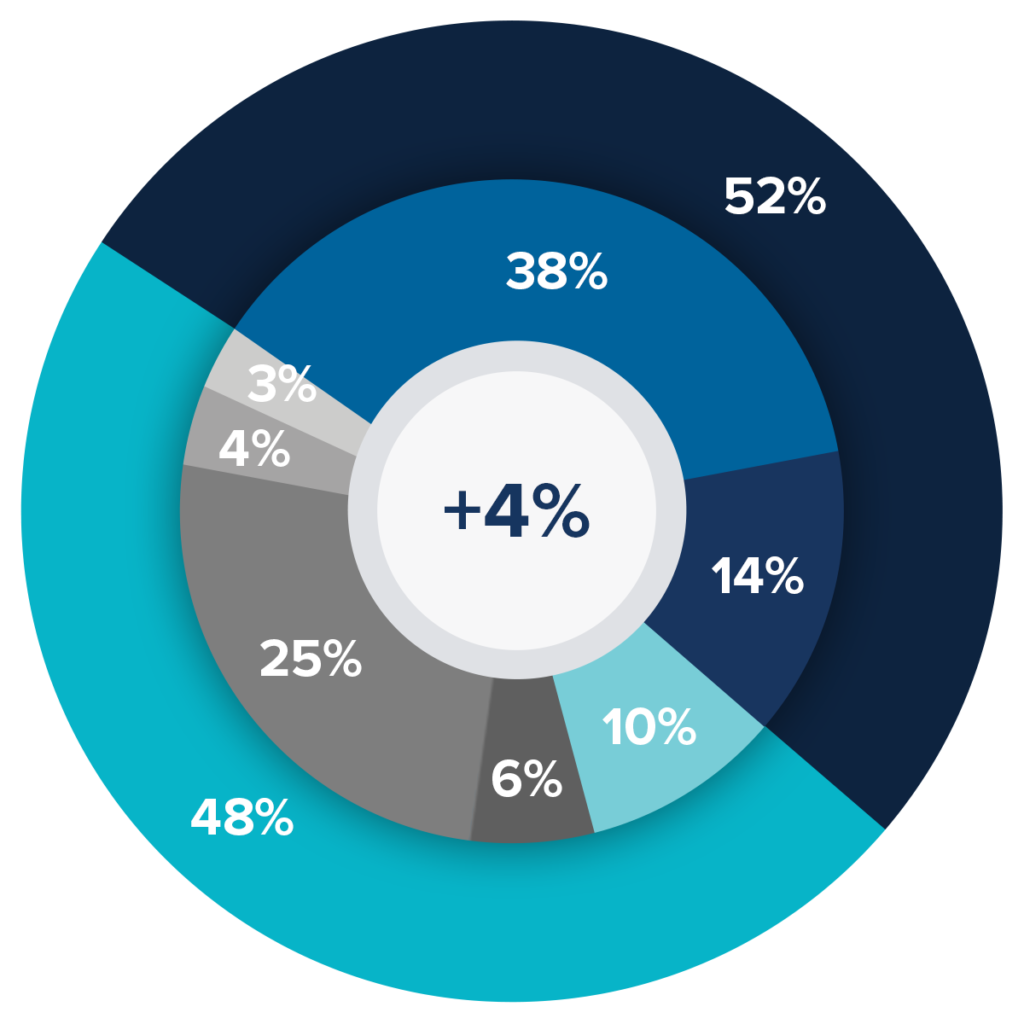PARTNERS & EMPLOYERS
Understanding the
Military Spouse Workforce
The military spouse workforce experiences numerous uncontrollable challenges so that America’s service members can honor their commitment to this country. They endure multiple deployments and relocations, continually having to reinvent themselves professionally and re-establish professional networks. As a result, many military spouses experience unemployment and underemployment. The unemployment rate for military spouses remains high, placing military spouses—and thereby, military families—in a constant state of recession.

| Total Not Employed | 48% | |
| Not Employed & Looking | 10% | |
| Not Employed & Not Looking | 6% | |
| At Home Caregiver | 25% | |
| Student | 4% | |
| Other | 3% | |
| Total Employed | 52% | |
| Employed Part Time | 14% | |
| Employed Full Time | 38% |
Military Spouse Underemployment
Military spouses are also more highly educated than most working Americans. Survey results show that 88% of military spouses have some post-high school education, 34% have a college degree, and 15% have a postgraduate degree.
48%
Are being paid less than
in a previous job
63%
Have had past positions that require more skills/responsibilities than their current position
69%
Say they have more work experience than required for
their current position
71%
Have more formal education than is needed for their current position
Through determination for their continued professional growth and familial necessity, military spouses upskill, launch their own businesses and create remote work opportunities that promote career continuity.
Today’s employment partnerships and commitments have increased career opportunities for military spouses to pursue these avenues, however there is more work to be done before these women and men experience opportunities equivalent to those of their civilian counterparts.
How Partners & Employers Can Use This Map
Employer policies and procedures greatly impact the career trajectories of military spouses. The military spouse career roadmap provides employers and partners with unique insights into three specific military spouse professional journeys. It depicts the fluid, fast-paced life military spouses lead, while focusing on remote work, upskilling, entrepreneurship, and self-employment as socio-economic drivers. Employers and partners will learn about significant events and may conceptualize ways they can support spouses through these experiences.
Above all, the map extends knowledge that can be used to identify places where these supporters can provide resources, support legislation, and share employment or educational opportunities. We hope employers and partners will consider these “partner and employer highlights” as they explore military spouse journeys.
